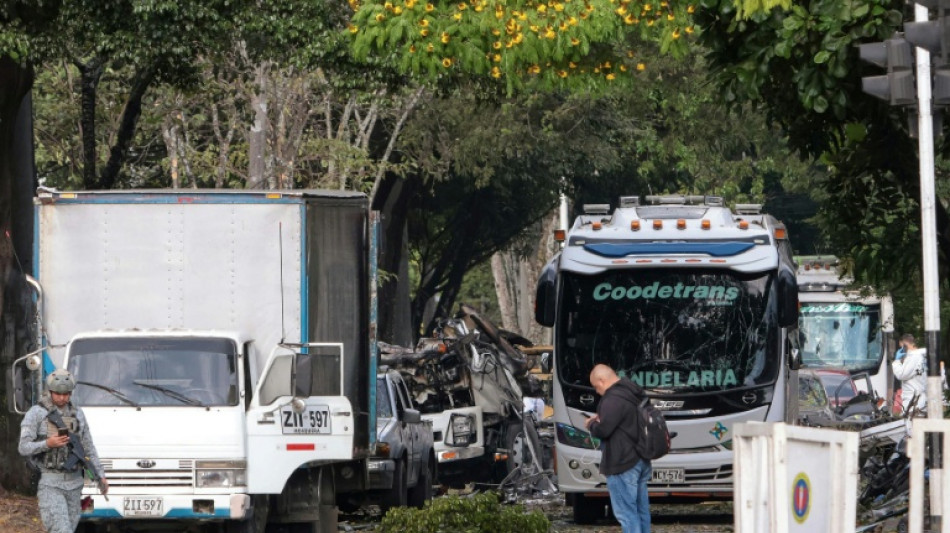
-
 Japan city proposes two-hour daily smartphone limit
Japan city proposes two-hour daily smartphone limit
-
A rise in the mountains as Vuelta a Espana cranks up the climbing

-
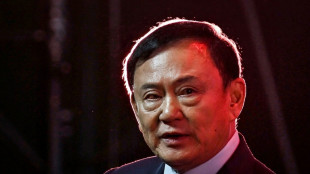 Thai ex-PM Thaksin acquitted of royal insult charges
Thai ex-PM Thaksin acquitted of royal insult charges
-
Japanese amateur boxer in intensive care after latest incident
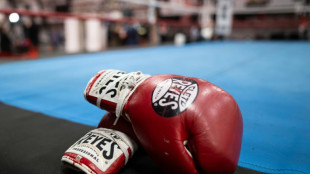
-
 US wine sellers left in limbo despite EU tariff deal
US wine sellers left in limbo despite EU tariff deal
-
Erik Menendez denied parole, decades after parents' murders

-
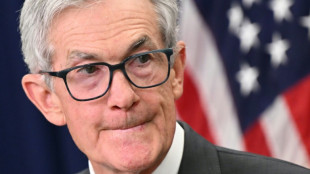 Under Trump pressure, US Fed chief to walk tightrope in speech
Under Trump pressure, US Fed chief to walk tightrope in speech
-
Nvidia chief says H20 chip shipments to China not a security concern
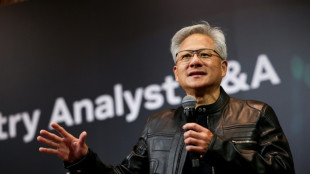
-
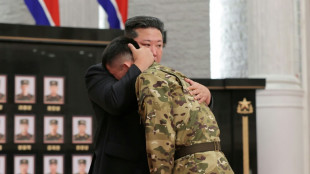 North Korea's Kim decorates troops who fought for Russia against Ukraine
North Korea's Kim decorates troops who fought for Russia against Ukraine
-
Two separate guerilla attacks kill 18 in Colombia
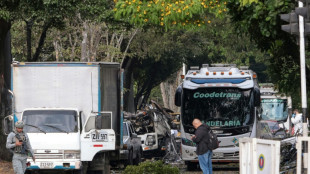
-
 Rice prices up 91 pct year-on-year in Japan
Rice prices up 91 pct year-on-year in Japan
-
Asian markets tick up as investors eye Jackson Hole meeting
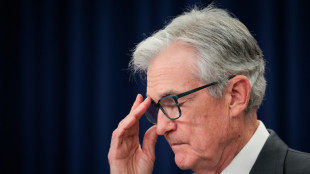
-
 De Bruyne leads Napoli's Serie A title defence as Lukaku injury causes concern
De Bruyne leads Napoli's Serie A title defence as Lukaku injury causes concern
-
Pollard, Albornoz hailed as key Rugby Championship clashes loom

-
 Marseille plunged into crisis with season just getting started
Marseille plunged into crisis with season just getting started
-
Pakistan woos old rival Bangladesh, as India watches on
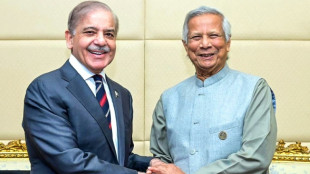
-
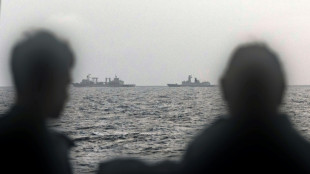 Documents show New Zealand unease over Chinese warships in South Pacific
Documents show New Zealand unease over Chinese warships in South Pacific
-
$346 mn US-Nigeria arms deal sets rights groups on edge
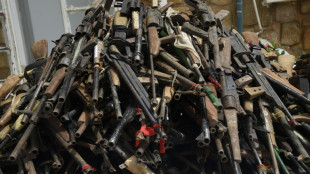
-
 Got the scoop: Bear takes over California ice cream shop
Got the scoop: Bear takes over California ice cream shop
-
Rested but rusty Djokovic plots US Open ambush
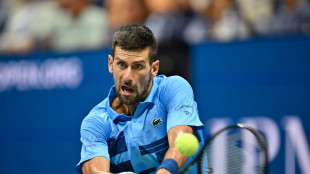
-
 'Tough lessons' helping Sabalenka ahead of US Open defence
'Tough lessons' helping Sabalenka ahead of US Open defence
-
Meta makes huge cloud computing deal with Google: source

-
 Blockbuster 'Sincaraz' rivalry ready to light up US Open
Blockbuster 'Sincaraz' rivalry ready to light up US Open
-
Less tax, more luxury: millionaires flock to Dubai
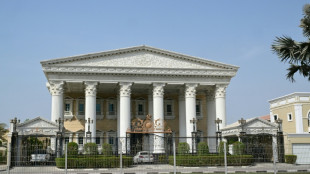
-
 Akie Iwai leads, Canadian teen Deng in hunt at LPGA Canadian Open
Akie Iwai leads, Canadian teen Deng in hunt at LPGA Canadian Open
-
Chile, Argentina football fans trade blame over stadium violence
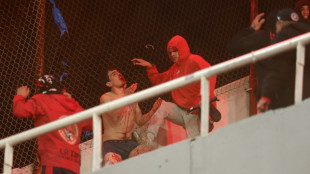
-
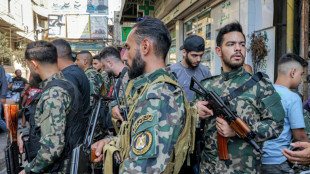 Palestinian camps in Lebanon begin disarming
Palestinian camps in Lebanon begin disarming
-
Five dead as 'thunderous' bomb attack hits Colombian city
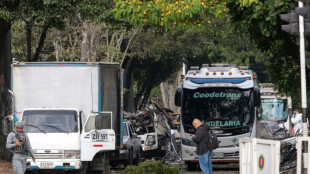
-
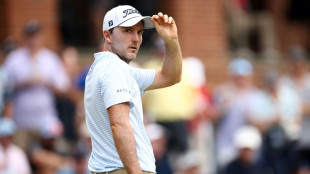 Henley leads PGA Tour Championship with Scheffler in pursuit
Henley leads PGA Tour Championship with Scheffler in pursuit
-
US Supreme Court allows cuts in NIH diversity research grants

-
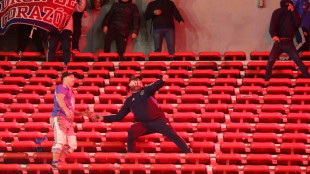 Why fan violence still sullies Latin American football
Why fan violence still sullies Latin American football
-
Lil Nas X arrested after nearly naked nighttime stroll in LA

-
 Texas, California race to redraw electoral maps ahead of US midterms
Texas, California race to redraw electoral maps ahead of US midterms
-
US captain Zackary wants Eagles to soar against England in Women's Rugby World Cup opener
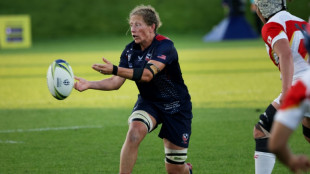
-
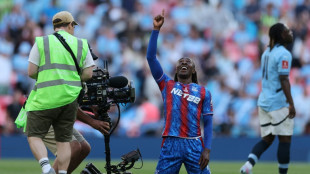 Palace's Eze on verge of Arsenal move as he misses European tie
Palace's Eze on verge of Arsenal move as he misses European tie
-
Google to provide Gemini AI tools to US government

-
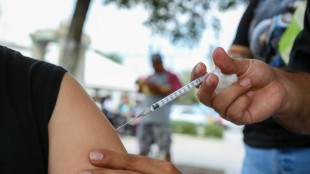 Canada measles cases pass 4,500, highest count in Americas
Canada measles cases pass 4,500, highest count in Americas
-
'Underdog' Jefferson-Wooden shrugs off Tokyo worlds pressure

-
 England's Jones relishing 'special occasion' at Women's Rugby World Cup after tragic year
England's Jones relishing 'special occasion' at Women's Rugby World Cup after tragic year
-
Alcaraz, Djokovic on US Open collision course

-
 US singer signs on for Russia's answer to Eurovision
US singer signs on for Russia's answer to Eurovision
-
Hundred-plus detained after fans 'lynched' during South America cup tie
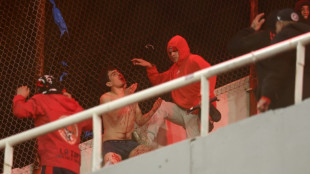
-
 Trump hails 'total victory' as US court quashes $464 mn civil penalty
Trump hails 'total victory' as US court quashes $464 mn civil penalty
-
Stocks waver ahead of Fed speech but EU tariff deal lifts Europe

-
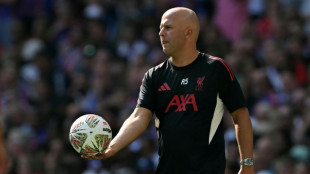 Slot says Liverpool will only sign right player at right price amid Isak row
Slot says Liverpool will only sign right player at right price amid Isak row
-
Walmart expects better sales, earnings as shoppers squeezed by tariffs

-
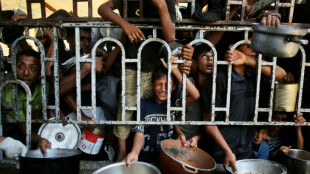 Malnourished Gaza children facing death without aid, says UN
Malnourished Gaza children facing death without aid, says UN
-
Autopsy rules out 'trauma' in Frenchman livestream death

-
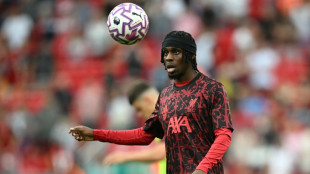 Liverpool's Frimpong out for several weeks with hamstring injury
Liverpool's Frimpong out for several weeks with hamstring injury
-
EU gets 15% US tariff for cars, but fails to get wine reprieve
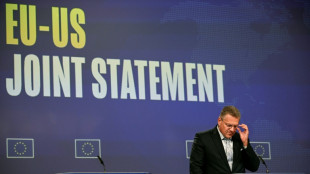

Two separate guerilla attacks kill 18 in Colombia
Two separate attacks blamed on dissident guerilla groups killed 18 people and wounded dozens in Colombia on Thursday, one involving a truck bomb while a drone downed a police helicopter in the other, deepening the country's most serious security crisis in decades.
The latest deadly attacks, which struck the southwestern city of Cali and a coca farm in the north, pose fresh challenges to Colombia's fragile peace processes ahead of elections next year.
Around 3 pm local time (2000 GMT), a truck loaded with explosives was detonated on a busy street near a military aviation school in Cali, killing six people and wounding more than 60, officials said.
"There was a thunderous sound of something exploding near the air base," 65-year-old eyewitness Hector Fabio Bolanos told AFP.
"There were so many injured people," he said.
Eyewitness Alexis Atizabal, 40, said "there were fatalities among people passing by on the avenue."
Images shared on social media showed vehicles on fire, destroyed homes, injured people on the ground and people fleeing in panic amid the sound of alarms and screams.
Cali mayor Alejandro Eder ordered martial law for the country's third most populous city. He also announced a temporary ban on large trucks entering the city and called on the public to report information about the incident for a US$10,000 reward.
Defense Minister Pedro Sanchez blamed the attack on the Central General Staff (EMC) guerrilla group, led by warlord Ivan Mordisco.
The group broke away from the defunct Revolutionary Armed Forces of Colombia (FARC) after it agreed to lay down arms for a historic peace deal in 2016.
- 12 police officers killed -
Earlier Thursday in the northeast of the country, guerrillas from another breakaway FARC group attacked police overseeing the eradication of coca crops, which are used to produce cocaine.
Armed with rifles and a drone, the fighters shot down the helicopter and killed 12 police officers, wounding three more, Antioquia departmental governor Andres Julian Rendon told a press conference.
Defense Minister Sanchez initially blamed the attack on the Clan del Golfo, Colombia's biggest drug cartel.
But he later said the attack was the work of a faction that split from EMC led by a commander under the alias of Calarca.
Many of Colombia's armed groups -- once based on leftist or right-wing ideologies -- are now de facto drug cartels, funding themselves through the lucrative cocaine trade.
The two dissident groups blamed for Thursday's attacks both rejected the peace agreement signed in 2016 with the bulk of FARC after a six-decade-long insurgency. They are also at odds with each other.
Left-wing guerrillas, right-wing paramilitaries and murderous cartels still control pockets of Colombia, but the country has enjoyed years of relative calm.
But there has been a recent surge in violence that experts say demonstrates armed groups are regaining strength and the ability to carry out coordinated, complex attacks.
Former top security officials have voiced concern that the Colombian intelligence services have lost a step and are no longer able to detect and foil plots.
- 'Most painful days' -
Colombians are fearful of a return to the violence of the 1980s and 1990s, when cartel attacks, guerrilla violence and political assassinations were commonplace.
The latest attacks heaped pressure on the government of President Gustavo Petro, whose conciliatory approach to armed groups has been blamed for the uptick in violence.
In response to Thursday's attacks, Petro said dissident guerrillas loyal to Mordisco, another group known as the "Segunda Marquetalia" and the country's largest cartel the Clan del Golfo would be declared "terrorist organizations."
Petro is constitutionally barred from running again in next year's elections.
Earlier this month, Colombia buried 39-year-old conservative presidential candidate Miguel Uribe, who was shot in June while campaigning in the capital Bogota.
Uribe's own mother, journalist Diana Turbay, was killed in a botched 1991 police operation to free her from cocaine kingpin Pablo Escobar's Medellin cartel.
D.Khalil--SF-PST
